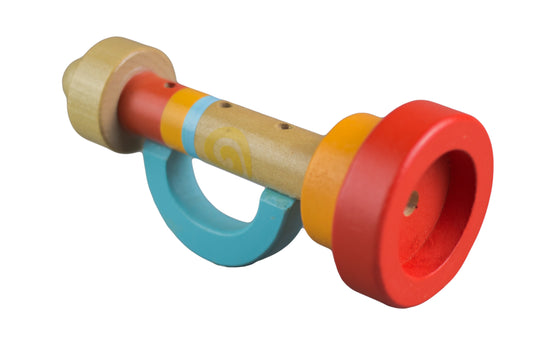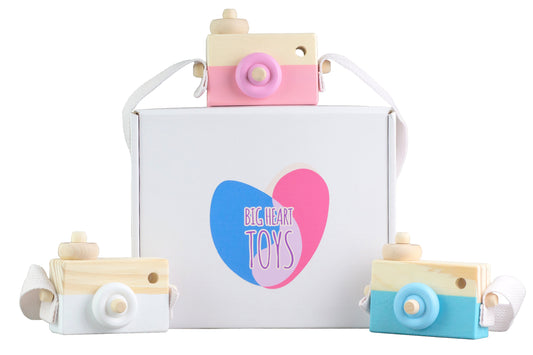We all love happy children! After all, our goal in parenting is to raise a happy, healthy child. An excited little one can be the most adorable thing in the world. However, there are times when children are over-excited, and it becomes problematic.
Let’s talk about how to calm them down and bring them back to a healthy level of excitement.
Excitement vs. Overexcitement
We love the laughter of children. Who can forget the first time their baby smiled up at them? In fact, according to research from 2019, more parents than ever just want their children to be happy. In the United States, 73% of Americans reported their primary goal was to raise happy children, with success and achievement ranking far lower.
But can children be too happy? The answer is — not quite. While happiness and joy are one thing, overexcitement is another.
Overexcitement occurs when a child has a good, even great, time but eventually becomes overwhelmed or overstimulated. Now, instead of enjoying their birthday party, the child is crying, fussing, or acting out. This may sometimes look like hyperactivity or a meltdown.
When someone is over-excited, they excessively express emotion in too strong of a manner. As the saying goes, sometimes there is too much of a good thing.
Overexcitement can lead to:
- Embarrassment
- Arguments with others (peers and adults)
- Overstimulation
- Anxiety or panic
- Difficulty calming down/self-regulating
Excitement and Emotional Regulation
When a child experiences overstimulation or overwhelming situations, feelings of excitement may outweigh their ability to self-regulate. Although they know the rules, behavioral norms, and expectations, they are distracted and forget.
For instance, if a child is in school playing with other children and something excites them, they may forget the classroom rules and react too loudly. Some over-excited children jump out of their seats, yell, or even throw things. While they are not doing this to be intentionally naughty, it can lead to consequences with teachers and peers.
This is also the case at home or in public. As a parent, having an excitable child can be tiring or challenging. Children have not yet developed the same skills we have to calm ourselves and regulate as needed. That leaves it up to us to help them.
With the amount of energy they have, excitable children can be tricky to calm down at first. With practice, both the child and the adult will create the best emotional control plan and leave more parties, schooldays, and playdates on a positive note.
Losing the ability to regulate oneself and calm down is a sign of overexcitement. It’s all about finding a balance between excitement and overexcitement.
Tips To Help a Child Self-Regulate
How can we help our children get back on track during these times or events?
Here are some ideas to help a child regain control of their emotions and actions:
-
Bring Attention to the Trigger Ahead of Time
It can be helpful to use the three S’s: see it, say it, and settle down:
- See it: Recognize an event that may trigger overexcitement.
- Say it: Help your child identify this event by gently pointing it out to them.
- Settle down:Use soothing methods to help calm the child and regulate emotions before the overexcitement gets out of hand.
Seeing the potential for overexcitement is the clear first step because our children may not always recognize things before they happen. As parents, we can pick up on our children’s patterns and behaviors to identify triggering events.
If your child gets very into imaginative or competitive play and has a difficult time letting things go, you may recognize the possibility of overexcitement at a neighborhood party. You may predict that there could be a struggle getting them to stop playing when the game is over.
Once you recognize the trigger, bring your child into the process and say it out loud to them. This helps them learn the skill of recognizing triggers and managing emotions. You may say, “Oh, how fun. I see they have games set up! Let’s remember we’re here to have fun, and when the game is over, it’s time to stop.”
This step gives your child a chance to have a reminder before the excitement even begins. It puts the behavior at the forefront of their minds so they can prepare.
Settling the over-excited child is often the hardest part. It’s good to have a toolbox of methods to calm your child down.
-
Remove the Trigger if Possible
If the trigger itself can be removed, do it! If a child is excitable due to loud noise and you have the ability to take them out of the room, that’s a good first step. Going on a walk, finding a quiet, calm space, or just stepping outside can be an instant way to soothe an overactive child.
-
Practice Visualization Techniques
Visualization can often help an excited child. Choose a calm, happy place. Encouraging the child to close their eyes, imagine they are there, and take some deep breaths will help them regulate their central nervous system.
-
Pull Out Comfort Items
Familiar comfort items like a favorite teddy bear can help soothe an overwhelmed child. It’s best to choose something small and easy to take with you. You can keep it in your purse, car, or bag to access it when necessary.
Similarly, music can help a child calm down. Listening to a soothing song or singing with the child can help them get back on track.
-
Rely on Deep Pressure Therapy
Sometimes, a big hug is all it takes to calm an anxious body. Applying pressure in a hug can help a child feel at ease, safe, and comforted.
Tools like a Weighted Gel Maze apply 2.2 pounds of gentle pressure, combining the effects of Deep Pressure Therapy with the benefits of a fidget toy.
There are endless possibilities to calm an over-excited child. The most important step is to determine the one that works best for your child. Have a few in mind for times of need — not every situation will call for the same soothing technique.
What Causes Children To Be Over-Excited?
All children (and adults!) are prone to overexcitement now and then. Both neurotypical and neurodiverse learners, including those with autism or ADHD, can become over-excited.
Environmental factors such as noise, the number of people, and excessive activity can all lead to overexcitement. Other factors can include holidays, parties, or disruptions in home life, including a change in their typical daily routine.
As with anything, every child has their own unique triggers to overexcitement. Many children get over-excited when playing games, others feel overstimulated by loud noise, and some get over-excited when they know something is coming up and they can’t stop thinking about it.
It’s important to watch and learn the specific triggers that cause your child to become over-excited. Once you can identify an individual child’s triggers, you can begin to identify their needs and strategies to help calm them down.
This may take a while, and every situation could present differently. For example, perhaps the excitement around the first day of school may look different from how they act on holidays.
How To Keep Children Happy and Calm
While we want to regulate an overstimulated or over-excited child, we don’t want to discourage them.
To start, validate their feelings. You may say something like, “Wow, how exciting! I know we can’t wait for this to happen too.” Starting with this before centering their behavior will allow them to feel seen rather than shut down.
The last thing we want is for our children to feel as if they are in trouble. While these times and behaviors may be frustrating, there is a big difference between poor behavior and overstimulated emotions. The goal is to model and manage behavior and emotions, not to diminish the excitement completely.
In Summary…
Over-excited children are not intentionally misbehaving. They are not acting out, being bad, or distracting others on purpose. Their emotions are simply overwhelming their little body. They lose the control that they may typically have over their behavior.
When a child is over-excited, we as parents have the ability to see it, say it, and settle them down. Identify the trigger, talk about it with your child, and rely on your toolbox of comfort to readjust and regulate. The five tools may be just the trick to help your child learn the tools to regulate their emotions in these stressful situations. If you need additional assistance, reach out to your pediatrician for more.
Sources:
How to Help Children Calm Down | Child Mind Institute
Overstimulation: babies and children | Raising Children
Happy Children: A Modern Emotional Commitment | Frontiers in Psychology
Why Does My Child Get Too Excited During Play? | Eyas Landing
How to Cope With Your Child's Sensory Overload | Verywell Family






